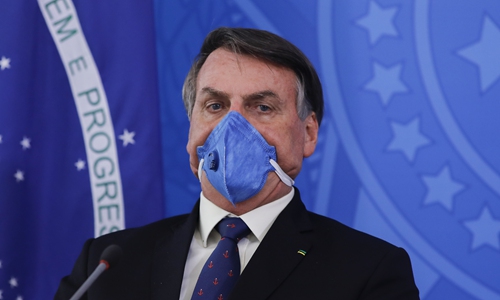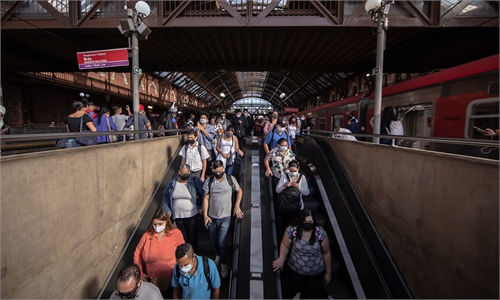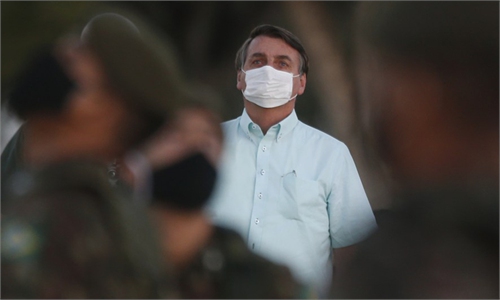
Brazilian president Jair Bolsonaro wears a face mask during a press conference on the coronavirus pandemic COVID-19 at the Planalto Palace in Brasilia, Brazil on Friday. Photo: AFP
Thousands of indigenous protesters marched through Brazil's capital Wednesday, dancing to the beat of pounding drums, as the Supreme Court prepared to take up a case that could eliminate reservations on their ancestral lands.
In what organizers said was the country's biggest indigenous protest ever, an estimated 6,000 demonstrators marched to the seat of power in Brasilia, filling the ultra-modern square bordered by the Supreme Court, Congress and the presidency with traditional costumes and chants.
The protest aimed to pressure the high court as it began a session where it will consider a case that could remove protected status for some native lands, opening them to agribusiness and mining.
The protesters, who hail from more than 170 ethnic groups, were also fighting what they call systematic persecution under far-right President Jair Bolsonaro.
"The Supreme Court needs to listen to the concerns of indigenous peoples and protect our constitutional rights," said Jatota Wajapi, 32, of the Wajapi people in the northern state of Amapa.
"The president wants to do away with our rights," he told AFP.
The protest was peaceful, with organizers urging demonstrators to avoid confrontations with police.
A similar protest in June erupted into clashes, with three indigenous demonstrators injured and three police wounded by arrows.
The court case revolves around the Brazilian constitution's protection of indigenous lands.
The agribusiness lobby argues those protections should only apply to lands whose inhabitants were present in 1988, when the constitution was adopted.
Indigenous rights activists argue the constitution mentions no such time limit, and that native inhabitants have often been forced from their ancestral lands.
Indigenous protesters have been camped out near the high court since Sunday, and plan to remain for a week - though it is unclear how long the ruling will take.
The court adjourned Wednesday without getting to the case, the second on its docket.
AFP



